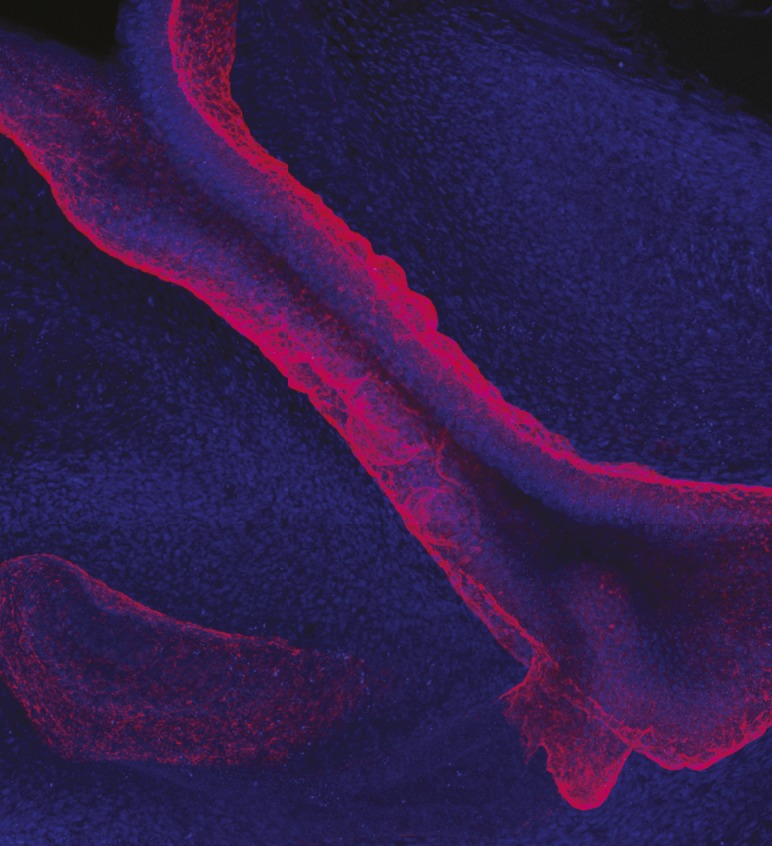Disruption of vaginal and urethral development

Masculinized sinus ridge and anterior urethra of an androgen-treated female mouse embryo.
Congenital adrenal hyperplasia can cause the masculinization of female genitalia during development due to the excessive production of androgens, which are male sex hormones. The development of the vagina depends on the sexual differentiation of the urogenital sinus ridge, an epithelial thickening where sex ducts attach to the urethra. To study the mechanisms that regulate the development of the female urethra and vagina, Christine Larkins et al. (pp. E7510–E7517) used genetic and pharmacologic manipulations to modulate androgen signaling at various developmental stages. In female fetuses, prenatal exposure to excess androgen at a time in development when the sinus ridge moves from the bladder neck to the vulva arrested sinus ridge movement. The timing and duration of androgen exposure determined where the vagina attached to the urethra. Chronic exposure during sinus ridge movement resulted in attachment of the vagina to the urethra in adult mice, but acute exposure or exposure prior to day 14.5 of development did not disrupt the formation of the vaginal opening. Cell type-specific deletions of androgen receptor showed that a subpopulation of mesenchymal cells adjacent to the urogenital sinus may have mediated the effects of androgen on sinus ridge position and urethra differentiation. According to the authors, the findings reveal a common mechanism that coordinates the development of the vagina and feminization of the urethra. — L.C.
Genetics, education, and longevity
Increased education is associated with a longer lifespan, and certain genetic variants are associated with educational attainment. Riccardo Marioni et al. (pp. 13366–13371) tested whether these education-linked genetic variants are also associated with longevity. The authors created a polygenic score that quantified an individual’s genetic propensity for educational attainment based on data from a genome-wide association study. Using data from three cohort studies comprising more than 130,000 participants in the United Kingdom and Estonia, the authors compared participants’ polygenic scores for education to the age of the participants’ parents at death. Previous studies have revealed a correlation between parental and offspring longevity; parental lifespan is therefore a proxy for the participants’ own life expectancies. In the current study, higher polygenic scores for education were associated with longer parental lifespans across all three cohort studies. Individuals with polygenic scores in the upper third of the distribution had parents who lived more than 6 months longer on average than those with scores in the lower third of the distribution. According to the authors, the results suggest an underlying genetic basis for the association between education and longevity. — B.D.


